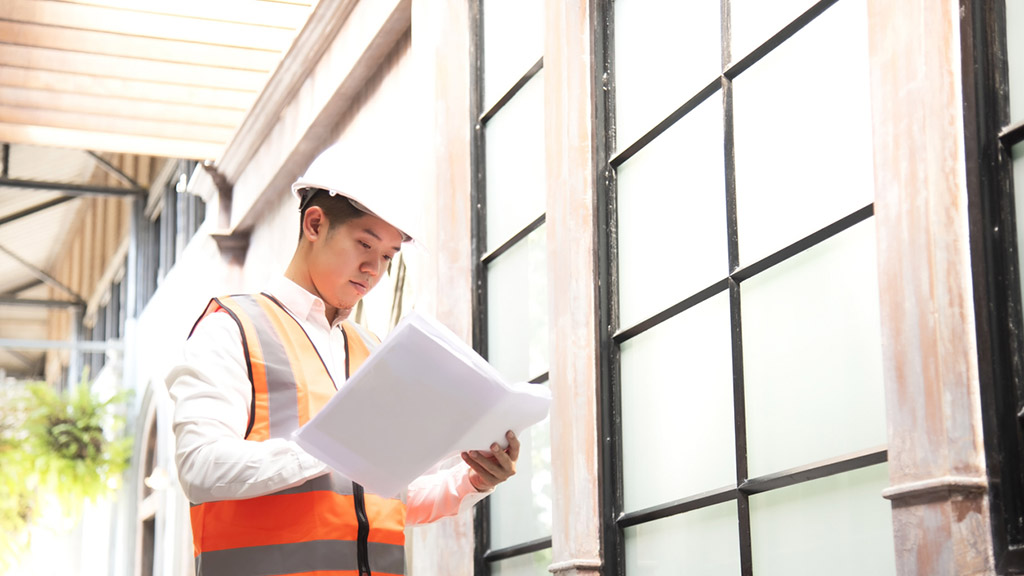Best Practices for Construction Permits: 14 Strategies to Tackle the Permitting Maze

Construction permits are essential for any construction project. They ensure that projects meet all applicable building codes and safety standards. But the process of obtaining and managing construction permits can be a time-consuming, convoluted process filled with obstacles. Construction firms and other project stakeholders must follow a number of strategies or best practices to navigate this process more effectively.
What Are Construction Permits?
Construction permits, often referred to as building permits, are official approvals issued by local governmental agencies that authorize the construction, renovation or demolition of a structure. They’re required for a wide range of construction projects, including new homes, commercial buildings, industrial facilities and infrastructure projects.
Permits are not just a piece of paper but a reflection of a project’s adherence to various codes, including building, zoning and environmental standards. These permits are a testament to the fact that the proposed construction will be safe, legal and in harmony with the local community and environment.
The specific requirements for each construction permit varies depending on the location of the project and the type of work being done. However, most construction permits require the applicant to submit detailed plans and specifications for the project and pay a fee.
Challenges in Obtaining and Managing Construction Permits
Dealing with construction permits isn’t a walk in the park. Several challenges typically emerge:
- Complexity
The permitting process can be very complicated. Applicants usually need to submit multiple applications to different government agencies to obtain numerous permits. On top of that, the review process can take several weeks or months.
- Time
Construction projects frequently need to be inspected and evaluated numerous times before they’re approved for permits, especially in the case of large projects. This process takes time (and patience!).
- Multiple Jurisdictions
Projects sometimes involve multiple jurisdictions, each with its own set of regulations, making it harder to obtain all of the necessary permits.
- Lack of Coordination Between Government Agencies
Different government agencies may have different requirements for construction permits. This can lead to delays and confusion for applicants.
- Incomplete or Inaccurate Permit Applications
Incomplete or inaccurate permit applications can be rejected, causing delays and additional costs.
- Lack of Clarity and Transparency
Permit regulations may be unclear or opaque. This can make it difficult to understand what is required to obtain a permit.
- Hidden Costs
There can be unforeseen costs associated with compliance or adjustments necessary to meet local codes.
- Changes to Project Plans
Changes to project plans may require additional permits, which can lead to delays and additional costs.
- Ever-Changing Regulations
Codes and standards evolve. What was acceptable a few years ago might not be today, further complicating the permit process.
- Delays and Inefficiencies
The construction permit process can result in repeated delays in construction projects and increased costs.
14 Must-Follow Strategies and Best Practices for Construction Permits
Here are some strategies and best practices that construction firms, project owners and others involved in the permitting process can follow to navigate the complex world of construction permits effectively.
1. Start Early
Given the complexity and length of the permit process, it’s crucial to begin as soon as possible. Starting early can help identify potential challenges and provide time to address them and avoid delays and cost overruns. Furthermore, the earlier you start, the more time the permitting agency has to review your application and issue the necessary permits.
2. Mind Your Documents
When applying for permits, you need to have all of the required documentation in order. Make sure that plans, drawings and related documents are correct and as detailed as possible. Ambiguity can cause delays or rejections.

3. Submit Complete and Accurate Applications
Submit complete and accurate permit applications and be responsive to any requests from the permitting agency. If the permitting agency needs additional information or clarification, provide it as soon as possible.
4. Work With Experienced Professionals
Whether it’s a permit expediter or a construction consultant familiar with local regulations, having experts on your team can streamline the process. An experienced professional can help you understand the permitting process and complete all of the required paperwork, saving significant time and effort.
5. Use Digital Tools
Use a construction management software platform or online permitting software to manage your construction permits. These digital tools allow you to centralize the permitting process and track the status of your applications.
6. Keep a Permit Checklist
A permit checklist can help you to make sure that you have all of the required documentation when you apply for a permit. Many permitting authorities provide permit checklists on their websites.
7. Communicate Regularly
Throughout the permit review process, communicate regularly with the permitting agencies that are responsible for reviewing your permit applications. Regular check-ins can provide updates on your application’s status and inform you of any potential issues.
8. Consider Pre-Approvals
Some jurisdictions offer pre-approval processes for repetitive or standard building models. Leveraging these can save time in the long run.
9. Be Proactive
Don’t wait for government agencies to contact you. Be proactive and reach out to them with any questions or concerns.
10. Build Relationships
Cultivate positive relationships with local officials and inspectors. Being on good terms and understanding their concerns can aid in smoother negotiations.
11. Be Flexible
Be prepared to make changes to your project plans in order to comply with construction permit regulations.
12. Be Patient
The construction permit process can be slow and frustrating, so it’s important to be patient. It is better to wait for the permit to be approved before starting construction than to risk having to make changes to the project later on.
13. Stay Informed
Keep abreast of the local building codes and regulations. Join local builder associations or attend city council meetings to stay updated on potential changes. Make sure that your team is continually updated on the latest in construction standards, codes and best practices.
14. Get Feedback
After obtaining a permit, conduct internal reviews to understand what went well and what could be improved. This iterative process can be invaluable for future projects.
By following these tips, you can increase your chances of obtaining your construction permits quickly and efficiently.
Final Words
Moving through the intricate tapestry of construction permits can be daunting. However, with the right knowledge, best practices and tools at your disposal, it’s possible to turn this maze into a manageable pathway.
Are you ready to turn your vision into reality? Contact CIC today to discuss your project and discover how our expertise, built steadily over the past 40 years, and our unwavering pledge to excellence can make all the difference.
